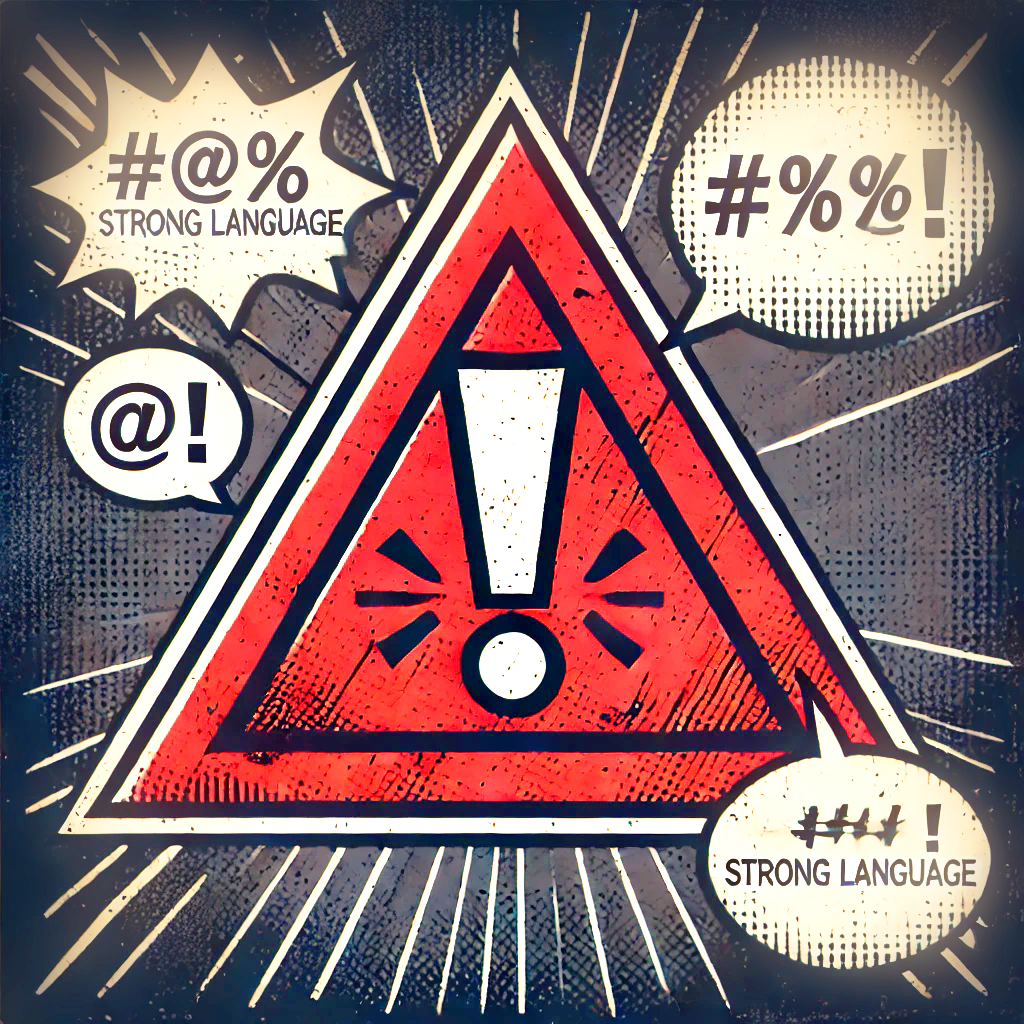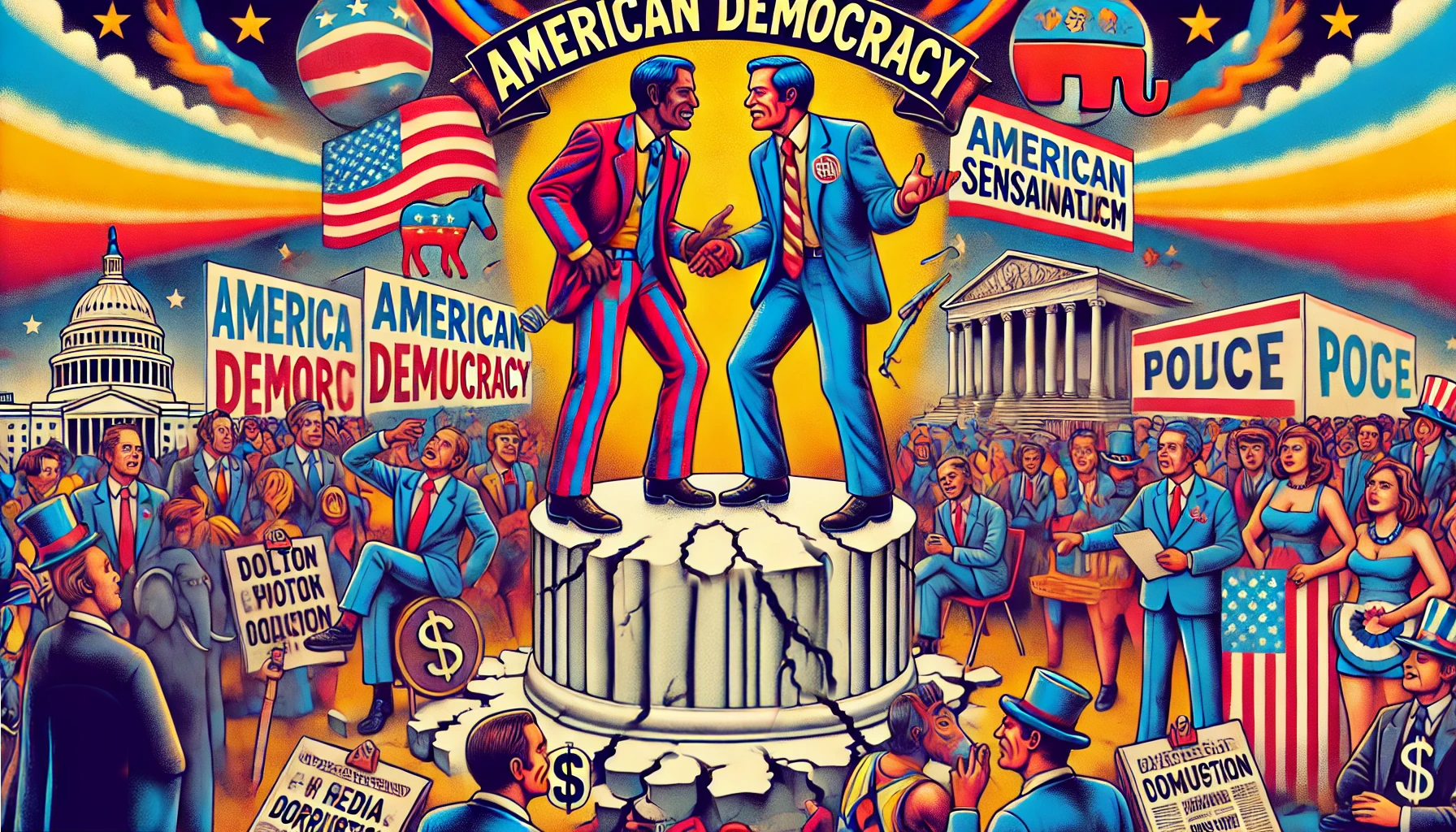The two-party system in the United States, once heralded as the cornerstone of American democracy, has become a grotesque caricature of its former self. Its failings are glaringly obvious to anyone willing to look beyond the patriotic platitudes and hollow promises. This once-vaunted mechanism of governance now serves more as a theater of absurdity, where the real concerns of the populace are drowned out by partisan bickering and self-serving agendas.
At the heart of this debacle lies a fundamental flaw: the two-party system is inherently divisive. It forces a nation of diverse opinions and interests into a binary choice, reducing complex political landscapes into simplistic, often polarizing, dichotomies. The result is a society split into “us” versus “them,” with little room for nuanced discussion or compromise. This divisive nature has turned politics into a zero-sum game where winning is prioritized over effective governance.
The system’s failure is further compounded by the corruption and entrenchment of the political elite. Both parties have become adept at manipulating the system to maintain their grip on power. Gerrymandering, voter suppression, and an obscene influx of money into politics have all but ensured that the interests of the few outweigh the needs of the many. The electoral process has been reduced to a farce, where candidates are more beholden to their wealthy donors than to their constituents.
Moreover, the two-party system fosters a culture of mediocrity and complacency. With only two major parties to choose from, voters are often left selecting the “lesser of two evils” rather than a candidate who genuinely represents their values and interests. This creates a stagnant political environment where innovation and progress are stifled, and the same tired policies are rehashed election after election. The lack of viable alternatives discourages voter participation, leading to a disengaged and disillusioned electorate.
In this cynical landscape, it is no surprise that ideological purity trumps pragmatism. Politicians are increasingly pressured to adhere strictly to party lines, lest they be labeled as traitors or sellouts. This rigid partisanship stifles debate and hinders the ability to reach across the aisle to forge meaningful solutions. The art of compromise, once a hallmark of American politics, has been sacrificed at the altar of party loyalty.
The media, too, plays a culpable role in the system’s downfall. In the relentless pursuit of ratings and clicks, news outlets have become echo chambers, amplifying partisan rhetoric and deepening societal divides. Sensationalism and outrage are the currencies of modern journalism, leaving little room for thoughtful analysis or balanced reporting. The public, bombarded with a constant stream of partisan propaganda, is left more confused and divided than ever.
Furthermore, the two-party system’s failure is starkly evident in its inability to address pressing issues facing the nation. Climate change, income inequality, healthcare, and systemic racism are complex problems that require comprehensive, multifaceted approaches. Yet, the binary nature of the two-party system reduces these issues to partisan talking points, preventing the development of effective, long-term solutions. The constant cycle of electioneering means that politicians are more focused on short-term gains and scoring political points than on crafting policies that benefit the nation as a whole.
So here we are, witnessing the spectacular failure of the two-party system in the United States. Its divisive nature, entrenched corruption, and promotion of mediocrity have led to a political landscape characterized by partisanship and stagnation. The system, once a pillar of American democracy, now serves primarily to maintain the status quo, protecting the interests of the political elite at the expense of the broader population. As the nation grapples with increasingly complex and urgent challenges, it is clear that the two-party system is ill-equipped to provide the leadership and solutions needed for a prosperous and equitable future.
Owner of BaedonWebZine and the mastermind behind its content. A versatile individual hailing from The Great American Desert, Henry carries the enduring influences of his upbringing. He wears multiple hats as a writer, graphics manipulator, devoted father, and dedicated geek. His days are spent exploring the world with a relentless quest for understanding, bringing a unique blend of insight and creativity to the site.




Leave a Reply